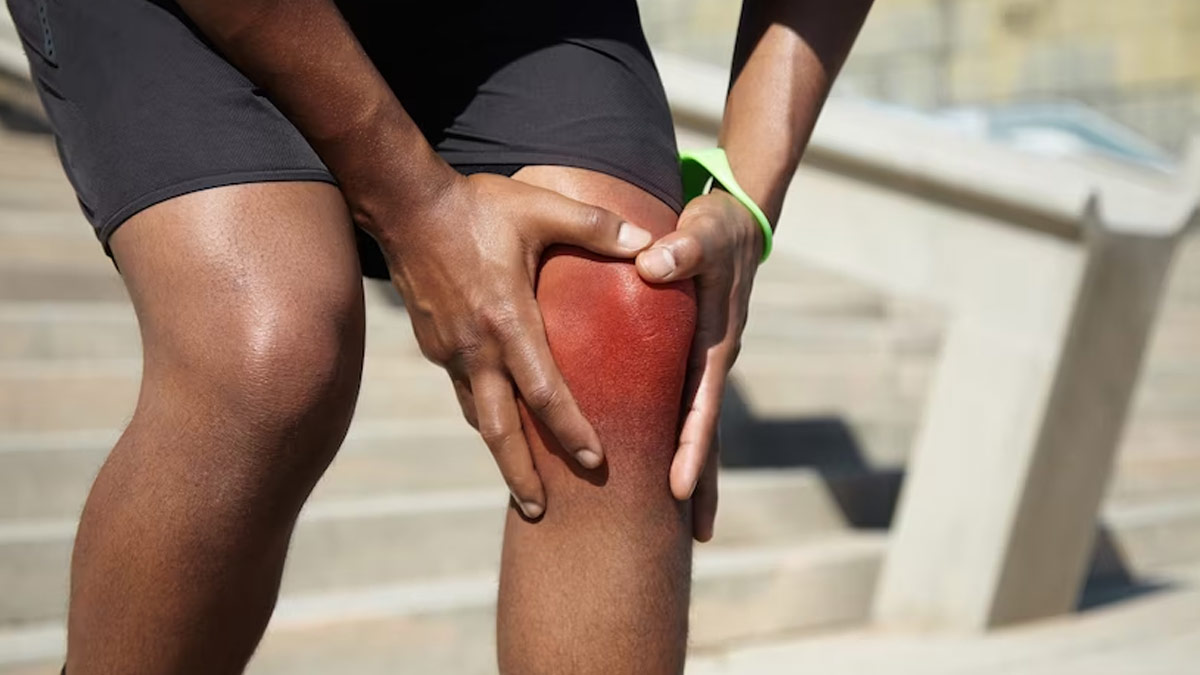
Blood vessels inside our body are capable of performing different functions with incredible feats. However, at times, they may seem fragile, leaving us with bruises easily. Have you ever wondered what bruises are?
Table of Content:-
Bruises occur when blood vessels under the skin break. Here are nine common reasons why some individuals experience a greater tendency to bruise.
Ageing and Thinning Skin
According to the Journal of Clinical and Aesthetic Dermatology, as we age, our skin becomes thinner and loses some of its protective cushioning. The reduced amount of collagen and elastin fibres weakens the blood vessels, making them more susceptible to damage. This makes the elderly more prone to bruising even with minor impact or pressure.
Vitamin Deficiencies
Nutritional deficiencies, particularly in vitamins C, K, and B12, can contribute to increased bruising. Vitamin C plays a vital role in collagen synthesis, which helps maintain blood vessel integrity. Vitamin K is essential for blood clotting, preventing excessive bruising. Similarly, a deficiency in vitamin B12 can impair platelet function, making bruising more likely.

Medications and Supplements
Certain medications and supplements can affect blood clotting and make bruising more frequent. Blood thinners, such as aspirin or warfarin, hinder the clotting process, resulting in easier bruising. Non-steroidal anti-inflammatory drugs (NSAIDs), such as ibuprofen, can also increase bruising risk.
Also read: Love Wearing Body-Hugging Clothes? Here’s How It Can Be Harmful For Health
Fragile Blood Vessels
Some individuals have naturally fragile blood vessels due to genetics or underlying medical conditions. As per the Indian Journal of Pharmaceutical Sciences, conditions like von Willebrand disease or haemophilia impair the blood's ability to clot properly, leading to prolonged bleeding and extensive bruising even with minor injuries.

Sun Damage
Excessive exposure to harmful UV rays can weaken the skin's structure, making it more susceptible to bruising. Over time, sun damage causes thinning of the skin, making blood vessels more prone to rupture resulting in easy bruising.
Hormonal Changes
Fluctuations in hormone levels, especially in women during pregnancy or menopause, can influence the integrity of blood vessels. These hormonal shifts can lead to increased bruising sensitivity and more visible bruising.
Impact of Chronic Illnesses
Underlying chronic health conditions, such as liver disease, kidney disease, or diabetes, can compromise blood vessel health and platelet function. Individuals with these conditions often experience weakened blood vessels and impaired clotting mechanisms, which contribute to easy bruising.
Trauma or Injury
Any form of physical trauma, such as a fall, bump, or injury, can cause bruising. However, some individuals tend to bruise more easily than others due to variations in skin thickness, blood vessel fragility, or the presence of other underlying factors.
Also read: How to know if you have a blood clot
Lifestyle Factors
Certain lifestyle choices can impact bruising susceptibility. Heavy alcohol consumption weakens blood vessels and impairs clotting, increasing the likelihood of bruising. Smoking damages blood vessels, making them more prone to rupture. Additionally, poor nutrition, lack of exercise, and obesity can contribute to weakened blood vessel walls.
While the appearance of bruises may be a cause for concern, understanding the reasons behind their occurrence can help us take better care of our bodies. From the natural ageing process to nutritional deficiencies, medications, and underlying health conditions, several factors can contribute to increased bruising susceptibility. By addressing these factors and adopting a healthy lifestyle, we can minimise the occurrence of bruises and promote our overall well-being.
Also watch this video
How we keep this article up to date:
We work with experts and keep a close eye on the latest in health and wellness. Whenever there is a new research or helpful information, we update our articles with accurate and useful advice.
Current Version